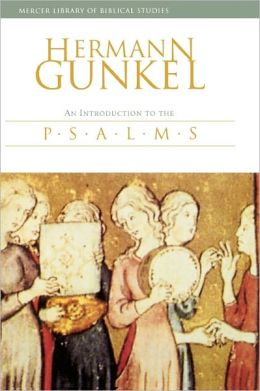Psalm 48:9 Thinking about God in His Temple
We have thought, O God, on Your lovingkindness, In the midst of Your temple.
-Psalm 48:9
Psalm 48 Title
The Beauty and Glory of Zion AMP
Zion, the City of Our God ESV
The City of God CEV
Zion Exalted CSB
The Glory of God in Zion NKJV
Beautiful Zion TPT
 Psalm 48 - "A song. A psalm of the sons of Korah."
Psalm 48 - "A song. A psalm of the sons of Korah."
A Joyful song and reverent psalm
Charles Spurgeon
Every song is not a Psalm, for poets are not all hearers-born, and every Psalm is not a song, for in coming before God we have to utter mournful confessions as well as exulting praises.

Jeffrey Kanz
The Hebrew word for psalm, mizmôr, means “melody.”
In Greek, the word psalmos means “song for the harp,” or originally, “plucking of strings.”
The word for “song” in Hebrew is the noun form of “sing,” so it’s safe to say these kinds of psalms are meant to be sung.

Hermann Gunkel divided the Psalms according to different genres:

Psalm 48 is a Psalm of Zion.
Ken Cayce
Songs of Zion extol Zion, or Jerusalem, for its exalted role as the abode of God’s glory and as the religious and political capital of the nation (Chapters 15, 24, 46, 48, 50, 76, 81, 84, 87, 95, 122, 134).

Peter C. Craigie
The substance of the Songs of Zion may appear superficially to be the praise of Mount Zion in the holy city; at a deeper level, it is the praise of God, whose presence and protection is symbolized by the holy mountain and its sanctuary.
We have thought, O God, on Your lovingkindness, In the midst of Your temple.
-Psalm 48:9
'Thought' here means:
Henry Hammond
"We have thought." The Hebrew דּוּם and דּמם and דּמה belong all to the same signification, of quiet, rest, silence, patient expecting, thinking, considering, and must be determined to any of these senses by the context. And here that of expecting or patient waiting, with affiance in him, and without all distrust or repining at his delays, seems to be most proper for it. For coming to the sanctuary to pray for mercy, 'tis most agreeable to say we wait for it there, as in the place where he hath promised to afford it, in return to prayers.
Spurgeon
"We have thought."
Holy men are thoughtful men; they do not suffer God's wonders to pass before their eyes and melt into forgetfulness, but they meditate deeply upon them.
Memories of mercy should be associated with continuance of praise.

Is thinking part of worship?
Spurgeon
What are the lovingkindnesses of God?
Pity to the wretched, pardon to the penitent, help to the prayerful, comfort to the afflicted, etc.
Spurgeon
Where are they to be found?
-Psalm 48:9
Psalm 48 Title
The Beauty and Glory of Zion AMP
Zion, the City of Our God ESV
The City of God CEV
Zion Exalted CSB
The Glory of God in Zion NKJV
Beautiful Zion TPT

A Joyful song and reverent psalm
Charles Spurgeon
Every song is not a Psalm, for poets are not all hearers-born, and every Psalm is not a song, for in coming before God we have to utter mournful confessions as well as exulting praises.

Jeffrey Kanz
The Hebrew word for psalm, mizmôr, means “melody.”
In Greek, the word psalmos means “song for the harp,” or originally, “plucking of strings.”
The word for “song” in Hebrew is the noun form of “sing,” so it’s safe to say these kinds of psalms are meant to be sung.

Hermann Gunkel divided the Psalms according to different genres:
- Hymns
- Royal Psalms
- Complaint Psalms/Lamentations
- Thanksgiving Psalms
- Wisdom Psalms
- Mixed or smaller genres
- Songs of Zion
- Historical Litanies
- Pilgrim Liturgies
- Judgment Liturgies
- Entrance Liturgies

Psalm 48 is a Psalm of Zion.
Ken Cayce
Songs of Zion extol Zion, or Jerusalem, for its exalted role as the abode of God’s glory and as the religious and political capital of the nation (Chapters 15, 24, 46, 48, 50, 76, 81, 84, 87, 95, 122, 134).

Peter C. Craigie
The substance of the Songs of Zion may appear superficially to be the praise of Mount Zion in the holy city; at a deeper level, it is the praise of God, whose presence and protection is symbolized by the holy mountain and its sanctuary.
We have thought, O God, on Your lovingkindness, In the midst of Your temple.
-Psalm 48:9
'Thought' here means:
- Contemplate
- Dwell
- Think
- Remember
- Meditate
- Ponder
- Wait for
- Carefully reflect
- Conceived
- Received
Henry Hammond
"We have thought." The Hebrew דּוּם and דּמם and דּמה belong all to the same signification, of quiet, rest, silence, patient expecting, thinking, considering, and must be determined to any of these senses by the context. And here that of expecting or patient waiting, with affiance in him, and without all distrust or repining at his delays, seems to be most proper for it. For coming to the sanctuary to pray for mercy, 'tis most agreeable to say we wait for it there, as in the place where he hath promised to afford it, in return to prayers.
- Affiance definition: to bind (a person or oneself) in a promise of marriage ; betroth.
Spurgeon
"We have thought."
Holy men are thoughtful men; they do not suffer God's wonders to pass before their eyes and melt into forgetfulness, but they meditate deeply upon them.
Memories of mercy should be associated with continuance of praise.

Do we only worship in church?
Is life about what we think about?
Is life about what we worship?
How is thinking connected to worship, God, and being?
How do our thoughts affect how we feel, act, and become?
How does what we think about God affect our whole lives?
Is the key to life having the right thoughts about God?
Spurgeon
What are the lovingkindnesses of God?
Pity to the wretched, pardon to the penitent, help to the prayerful, comfort to the afflicted, etc.
- The lovingkindness of God is also called steadfast love.
- The lovingkindness of God is also called faithful love.
- The lovingkindness of God is also called mercy.
- The lovingkindness of God is also called constant love.
- The lovingkindness of God is also called loyal love.
- The lovingkindness of God is also called love-in-action.
- The lovingkindness of God is also called gracious love.
- The lovingkindness of God is also called unfailing love.
- The lovingkindness of God is also called thy chesed.
Chesed (Hebrew: חֶסֶד, also Romanized ḥesed) is a Hebrew word.. In its positive sense, the word is used of kindness or love between people, of piety of people towards God as well as of love or mercy of God towards humanity.
Spurgeon
Where are they to be found?
"In the midst of Your temple".
1. Here they are revealed.
2. Here they are dispensed.
3. Here they are sought.
4. Here they are enjoyed.
1. Here they are revealed.
- The lovingkindnesses of God are revealed in your temple.
2. Here they are dispensed.
- The lovingkindnesses of God are dispensed in your temple.
3. Here they are sought.
- The lovingkindnesses of God are sought in your temple.
4. Here they are enjoyed.
- The lovingkindnesses of God are enjoyed in your temple.
What is the 'Your temple'?
Is it a church's sanctuary?
Is it anyplace, anywhere?
Is is you, your physical body?
Are believers really the temple of God?
Is your temple somewhere you go to?
How do you get to the temple of God?
What is the way there?
Is worship about giving or receiving?
Can you worship alone or must it be in groups?
Can worship be silent, or must there be sound?
Is worship with your body, or your mind?
"What you think about God is the single most important thing in your life."
We have thought, O God, on Your lovingkindness, In the midst of Your temple.
-Psalm 48:9
Is your temple somewhere you go to?
How do you get to the temple of God?
What is the way there?
Is worship about giving or receiving?
Can you worship alone or must it be in groups?
Can worship be silent, or must there be sound?
Is worship with your body, or your mind?
"What you think about God is the single most important thing in your life."
We have thought, O God, on Your lovingkindness, In the midst of Your temple.
-Psalm 48:9

Comments
Post a Comment